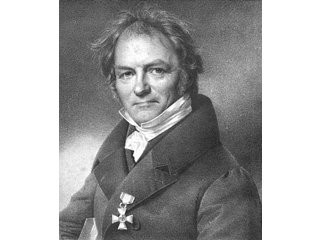
Karl Ritter (geographer) biography
Date of birth : 1779-08-07
Date of death : 1859-09-28
Birthplace : Quedlinburg, Germany
Nationality : German
Category : Arhitecture and Engineering
Last modified : 2011-08-31
Credited as : Geographer, modern school of geography,
Karl Ritter was a German geographer of international fame and a founder of the modern school of German geography. His time is often called the "classical period" among geographers.
One of six children, Karl Ritter was born at Quedlinburg on Aug. 7, 1779, into the much-respected family of F. W. Ritter, a medical doctor. Two years later his father died. Young Karl entered a school in which the pupils were taken out to study nature. Apparently inspired by the theories of Jean Jacques Rousseau, this school left a permanent mark on Ritter, who retained an interest in new ideas on education, including those of Johann Pestalozzi.
Much of Ritter's writing was based on Pestalozzi's ideas of the three stages in teaching: the acquisition of the material, the general comparison of material, and the establishment of a general system. Ritter was largely concerned with comparison; some interesting general ideas emerged in his work, such as those of the water and land hemispheres, the contrast between the Northern and Southern Hemispheres, the contrast in form between the Old and the New World (the Old having great east-west length, and the New north-south), and the concept of the "space relations" of particular countries, meaning their position in relation to neighboring areas. Africa, he noted, had relatively the shortest and most regular coastline of all the continents, and the interior had little contact with the ocean. Asia was far better provided with sea inlets, but the interior was isolated from the margins. Europe was the most varied of all the continents, with a complex interpenetration of land and sea.
In 1796 Ritter went to Halle University for 2 years, and in 1798 he became a tutor for the Hollweg family, who were rich bankers in Frankfurt. He began to publish papers in 1802, and in 1804 and 1807 he published a two-volume work on Europe described as "geographical, historical [and] statistical." He traveled widely in Europe but only once went to Asia and then only to Smyrna. The first volume of his great Erdkunde (Geography), of some 10,000 pages, dealt with Africa and appeared in 1817; the second edition, revised, of 1822, was the first of 19 volumes published at intervals to 1859.
Having married in 1819, Ritter became a history teacher in Frankfurt, but in 1820 he went to Berlin as professor of geography at the university and the Royal Military Academy. He was a founding member of the Berlin Geographical Society in 1828. Active almost to the last, Ritter died on Sept. 28, 1859, in Berlin.
















